Introduction To Beet And İts Nutritional Value
Beets, otherwise known as Beta vulgaris, have been consumed for their nutritional value for centuries. The root vegetable comes in a variety of colors such as red, golden, and even white. It has a sweet, earthy flavor and can be eaten cooked or raw.
Beets are packed with essential vitamins and minerals such as vitamin C, folate, iron, and manganese. They are also a great source of dietary fiber and nitrates, which may help improve athletic performance and blood pressure levels.
- Vitamin C: Helps boost the immune system and promotes healthy skin.
- Folate: Supports healthy fetal development and may reduce the risk of certain cancers.
- Iron: Necessary for the production of red blood cells and oxygen transport throughout the body.
- Manganese: Supports bone health and aids in the metabolism of carbohydrates, proteins, and fats.
Beets also contain betalains, which are pigments that give the vegetable its deep red color. Betalains have been shown to have antioxidant and anti-inflammatory properties, which may help combat a variety of health conditions such as heart disease and cancer.
Incorporating beets into your diet can be as simple as roasting them in the oven, adding them to a salad, or juicing them for a nutrient-dense beverage. With all of its nutritional benefits, it’s no wonder why beets have stood the test of time as a staple in many cultures’ diets.
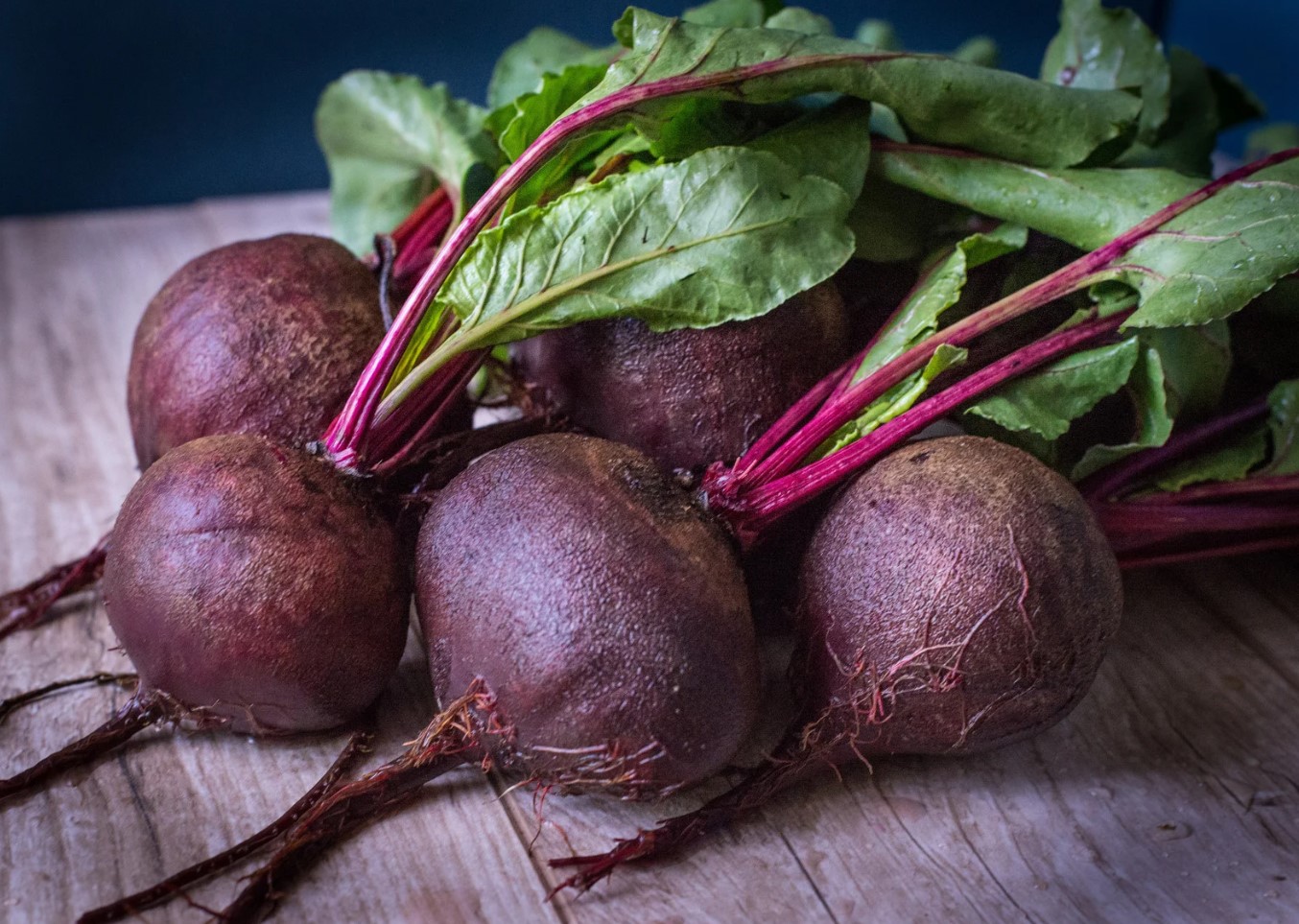
Boosting Athletic Performance With Beet Juice
As an athlete, it’s always important to find ways to improve your performance. Whether you’re a professional athlete or just someone who enjoys exercising regularly, you know how important it is to optimize your body’s capabilities. One way to do this is by incorporating beet juice into your diet.
Beets are known for their high nutritional value, containing a variety of vitamins and minerals, including iron, potassium, and vitamin C. They are also packed with nitrates, which are converted into nitric oxide in the body. This compound helps improve blood flow and oxygen delivery to muscles, which can lead to increased performance and endurance during exercise.
- Beet juice has been shown to improve athletic performance in a variety of ways:
- Increased endurance: Studies have shown that drinking beet juice can help athletes exercise for longer periods of time without feeling tired.
- Improved strength: Beet juice consumption has also been linked to increased muscle power and strength.
- Faster recovery: The nitrates in beet juice can also help reduce muscle soreness and speed up recovery time after exercise.
It’s important to note that while beet juice can be beneficial for athletes, it’s not a magic solution. You still need to maintain a healthy diet and exercise routine in order to see results. Additionally, drinking too much beet juice can lead to side effects such as stomach upset and diarrhea. It’s recommended to start with a small amount and gradually increase your intake over time.
In conclusion, incorporating beet juice into your diet can be a great way to boost your athletic performance. Not only is it high in nutritional value, but it can also help increase endurance, improve strength, and speed up recovery time. Just remember to consume in moderation and always consult with your doctor before making any changes to your diet.
Improvement İn Blood Pressure And Heart Health
Beetroot has been gaining attention in recent years for its potential health benefits, including its ability to improve blood pressure and heart health. The main component responsible for this is the dietary nitrate found in beetroot, which is converted to nitric oxide in the body.
Nitric oxide is a molecule that helps relax and dilate blood vessels, allowing for better blood flow and lower blood pressure. Studies have shown that consuming beetroot or beet juice can lead to significant reductions in blood pressure in both healthy individuals and those with hypertension.
- One study found that drinking 500ml of beetroot juice daily for 4 weeks resulted in a 10mmHg reduction in systolic blood pressure for individuals with hypertension.
- Another study showed that consuming 100g of beetroot daily for 7 days led to a 5mmHg reduction in systolic blood pressure for healthy individuals.
In addition to nitric oxide, beetroot also contains other beneficial compounds such as antioxidants and betaine. These compounds work together to protect the heart and improve overall cardiovascular health. For example, betaine has been shown to reduce levels of homocysteine, an amino acid linked to heart disease.
| Nutrient | Amount per 100g |
|---|---|
| Calories | 43 |
| Carbohydrates | 9.6g |
| Fiber | 2.8g |
| Protein | 1.6g |
| Nitrate | 250-500mg |
| Betaine | 129mg |
| Vitamin C | 4.9mg |
While consuming beetroot can be a healthy addition to a balanced diet, it’s important to note that it can also interact with certain medications and should be consumed in moderation. If you have any concerns or medical conditions, it’s best to consult with a healthcare professional before incorporating beetroot into your diet.
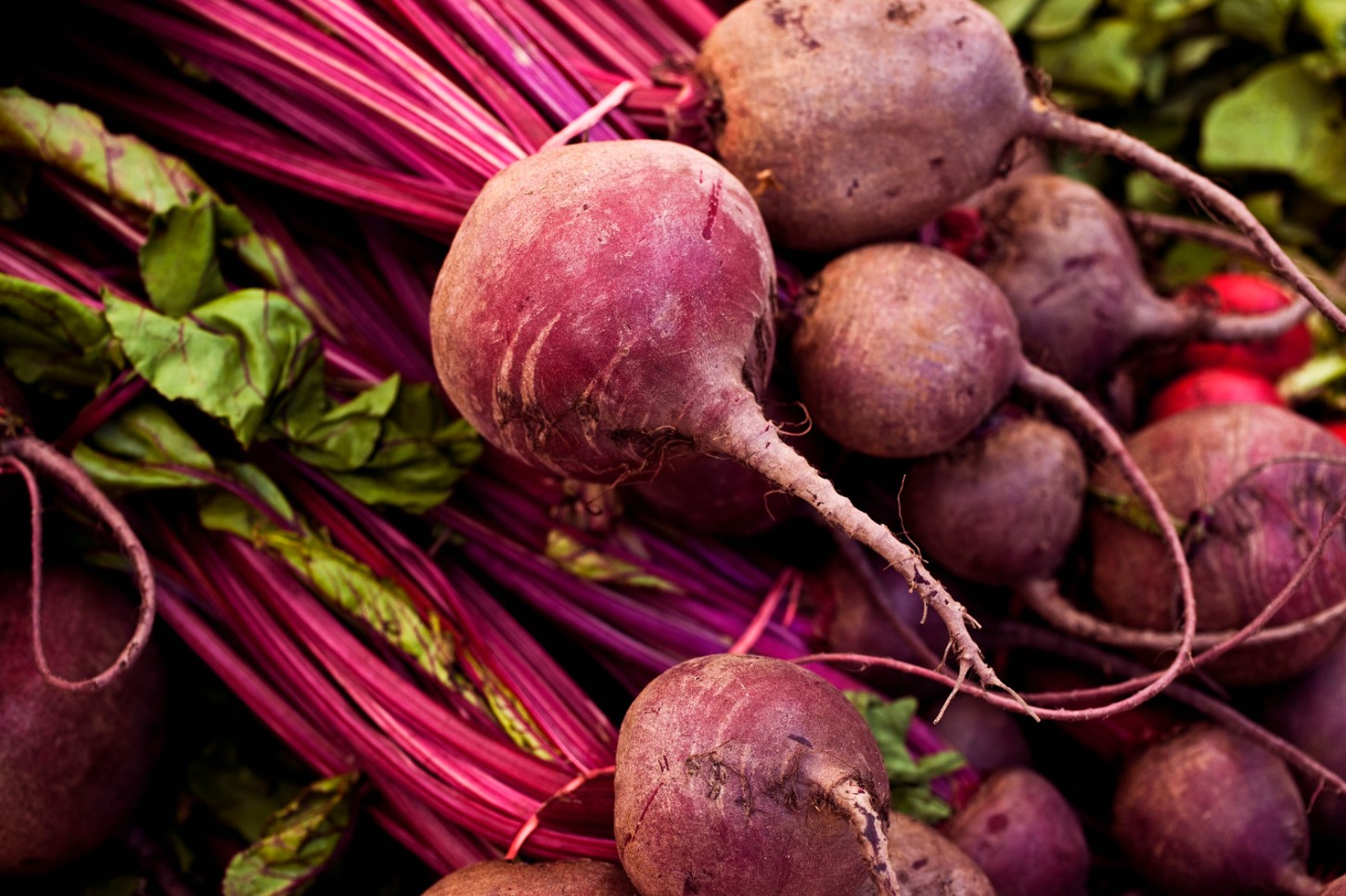
Combating Inflammation With Beetroot
Beetroot has increasingly become a popular superfood due to its potential health benefits. One significant advantage of beetroot is its ability to combat inflammation in the body. Inflammation is the main factor behind several chronic diseases, such as diabetes, cancer, and heart disease. Incorporating beetroot into your diet regularly has been shown to reduce inflammation significantly.
The anti-inflammatory properties of beetroot are due to its high content of antioxidants and anti-inflammatory compounds, such as betalains and phytonutrients. These compounds help to neutralize free radicals and reduce oxidative stress, which are the main culprits of inflammation. Additionally, betalains have shown to prevent the production of inflammatory enzymes in the body.
- Beetroot can be consumed in various forms and added to your daily diet. One of the easiest ways to consume beetroot is in the form of juice. Drinking beetroot juice regularly has shown to reduce inflammation markers in the body.
- You can also incorporate beetroot into your salads or as a side dish for your meals. Roasted beets with feta cheese or beetroot hummus are some delicious options to try.
It is important to note that consuming beetroot should not replace any prescribed medication or treatment for any chronic inflammatory condition. It is always best to consult with your healthcare provider before making any dietary changes.
| Benefits of Beetroot for Inflammation | |
|---|---|
| Anti-inflammatory compounds found in beetroot help to reduce chronic inflammation in the body. | |
| Betalains and phytonutrients present in beetroot help to neutralize free radicals, which are the main culprits of inflammation. | |
| Regular consumption of beetroot, especially in juice form, has shown to reduce inflammation markers in the body. |
In conclusion, beetroot is an excellent addition to your diet as it can help combat inflammation in the body due to its high content of antioxidants and anti-inflammatory compounds. Incorporating beetroot in your daily diet will not only benefit your body in the long run but also add some delicious flavors to your meals.
The Role Of Beets İn Detoxifying The Liver
Beetroot has been used for centuries as a traditional medicine to treat various health conditions. In recent years, there has been a surge in interest in its ability to detoxify the liver. The liver is one of the most vital organs of the body that helps to filter out toxins and other harmful substances. Over time, due to an unhealthy lifestyle or exposure to environmental toxins, the liver can become overworked and overloaded, leading to liver damage and other health issues.
Research has shown that beets contain a unique combination of compounds that help to support liver detoxification. The main compound responsible for this function is betalain, which is a natural antioxidant, anti-inflammatory, and anti-cancer agent. Betalain helps to neutralize toxins, making them easier to eliminate from the body.
Another important compound found in beets is betaine, which is a methyl donor that helps to reduce the accumulation of homocysteine in the blood. High levels of homocysteine have been associated with liver damage and other health problems. Betaine also helps to protect the liver against fatty deposits and other forms of damage.
- Beets can be consumed raw, cooked, or juiced to help support liver detoxification.
- Raw beetroot can be grated and added to salads or sandwiches.
- Cooked beetroot can be roasted, boiled or steamed and served as a side dish.
- Beetroot juice can be made by blending raw beets with other fruits and vegetables or taken as a shot.
| Food | Detoxifying Properties |
|---|---|
| Garlic | Contains sulfur compounds that activate liver enzymes and help to eliminate toxins. |
| Turmeric | Contains curcumin, an antioxidant that helps to reduce inflammation and protect the liver. |
| Grapefruit | Contains naringenin, a compound that helps to boost the liver’s ability to burn fat. |
| Green leafy vegetables | Contain chlorophyll, a natural detoxifier that helps to eliminate toxins from the body. |
| Lemons | Contain vitamin C, which helps to boost liver function and protect against oxidative stress. |
It is important to note that while beets are a natural detoxifier, they should not be relied upon as the sole solution for liver health. Maintaining a healthy, balanced diet and lifestyle is still the best way to protect your liver and overall health. Additionally, individuals with oxalate kidney stones should consume beets in moderation or avoid completely due to high oxalate content.
To conclude, the role of beets in detoxifying the liver has been well-documented. Its unique combination of compounds, including betalain and betaine, make it a powerful tool in the fight against liver damage and other health issues. Consuming beets regularly as part of a healthy diet can go a long way in supporting liver health and overall wellness.
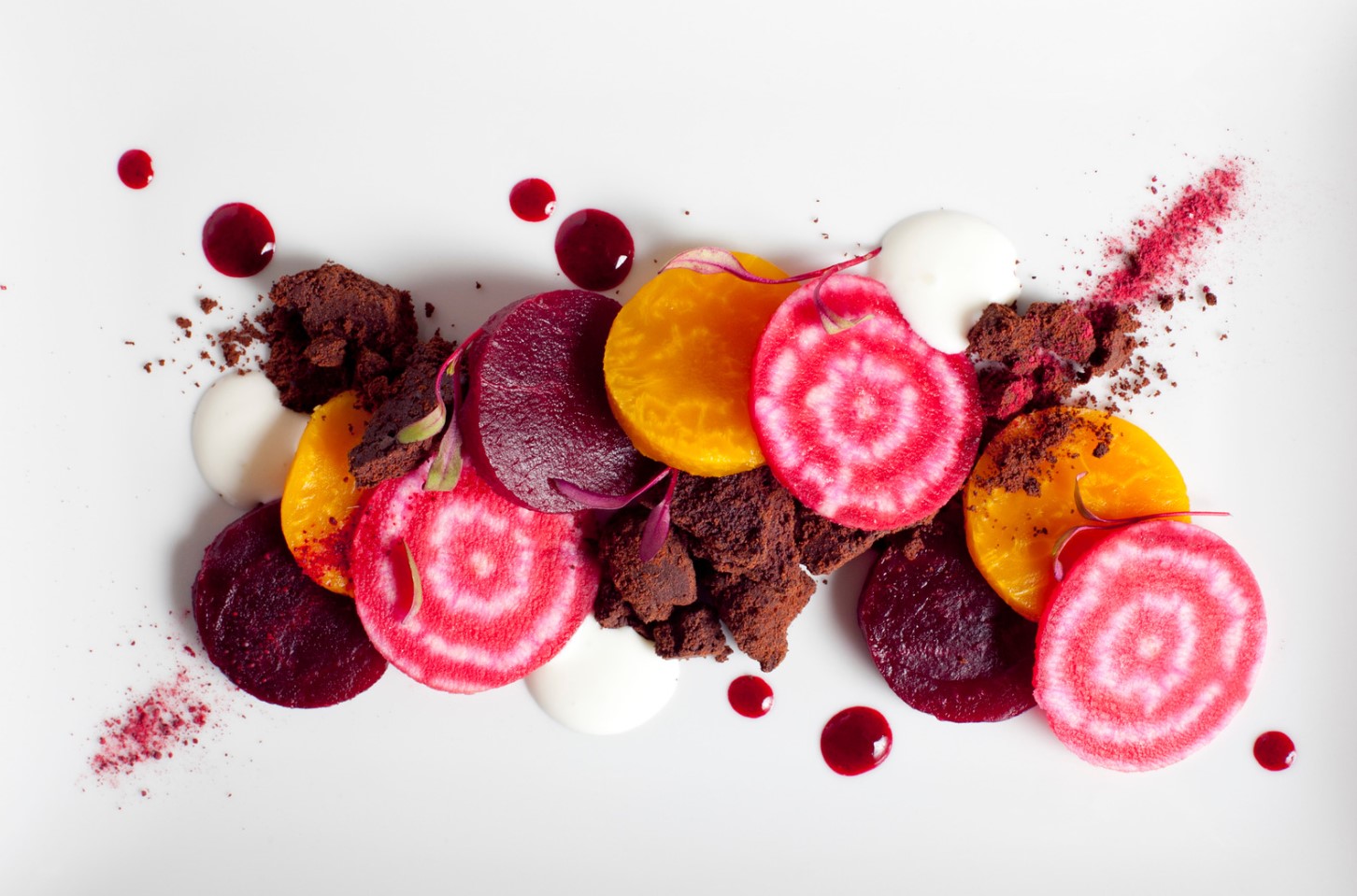
Promoting Brain Health With Beet Consumption
Beets are not only tasty but also incredibly beneficial for your body, especially your brain. Consuming beets regularly can help promote brain health and function.
One of the main reasons beets are so beneficial for the brain is because they contain nitrates. When you consume nitrates, they are converted into nitric oxide in the body, which helps to improve blood flow and oxygenation to the brain. This increased blood flow can lead to improved cognitive function and lower risk of cognitive decline.
Beets also contain betaine, a compound that has been shown to protect the brain from age-related damage and reduce inflammation. In addition, the high concentration of antioxidants in beets can help to combat oxidative stress in the brain, which is a leading cause of neurodegenerative diseases like Alzheimer’s and Parkinson’s.
- If you want to start incorporating beets into your diet to promote brain health, try adding them to your salads or roasting them as a side dish.
- You can also try drinking beet juice, which is a great way to get a concentrated dose of nitrates and other beneficial compounds found in beets.
Overall, consuming beets regularly can help to promote brain health and function, reducing your risk of cognitive decline and neurodegenerative diseases. So why not add some beets to your next meal and give your brain a boost?
Controlling Diabetes With Beetroots
Diabetes is a chronic condition that affects millions of people worldwide. It can be caused by a variety of factors, including genetics, lifestyle choices, and diet. While there are several prescription medications available to manage diabetes, many people are turning to natural remedies like beetroots to help control their blood sugar levels. Beetroot is a root vegetable that has been used for centuries for its health benefits, including its ability to regulate blood sugar levels.
Beetroot contains natural sugars that are slowly absorbed into the bloodstream, which helps to prevent blood sugar spikes. Additionally, beetroots are high in fiber, which slows down the absorption of sugars into the bloodstream. This means that consuming beetroots can help control blood sugar levels and prevent insulin resistance in people with diabetes.
- Beetroot leaves and stems are also rich in nutrients and can be eaten raw in salads or cooked in soups and stews.
- Beetroot juice is a popular way to consume this vegetable and has been shown to help lower blood sugar levels in people with type 2 diabetes.
- However, it is important to note that drinking too much beetroot juice can lead to temporary changes in urine and stool color due to the vegetable’s natural pigments. This is harmless, but it is best to consume beetroot juice in moderation.
Studies have also shown that beetroots contain compounds that have antioxidant and anti-inflammatory properties. These compounds may help lower the risk of complications associated with diabetes, such as heart disease and nerve damage.
While beetroots can be a beneficial addition to a diabetes-friendly diet, it is essential to speak with a healthcare provider before incorporating any new foods or supplements into your routine. Additionally, people taking medications to lower their blood sugar levels should be cautious when adding beetroot to their diet, as it may lead to dangerously low blood sugar levels.
| Pros of Beetroots for Diabetes | Cons of Beetroots for Diabetes |
|---|---|
| Slow absorption of natural sugars | May cause temporary changes in urine and stool color |
| High in fiber to prevent blood sugar spikes | May lower blood sugar levels too much in people taking medication |
| Compounds with antioxidant and anti-inflammatory properties may lower risk of complications |
In conclusion, beetroots can be a valuable addition to a diabetes-friendly diet as they can help control blood sugar levels and lower the risk of complications associated with the condition. However, it is essential to speak with a healthcare provider and exercise caution when adding beetroots to your diet, particularly if you are taking medication to regulate blood sugar levels.
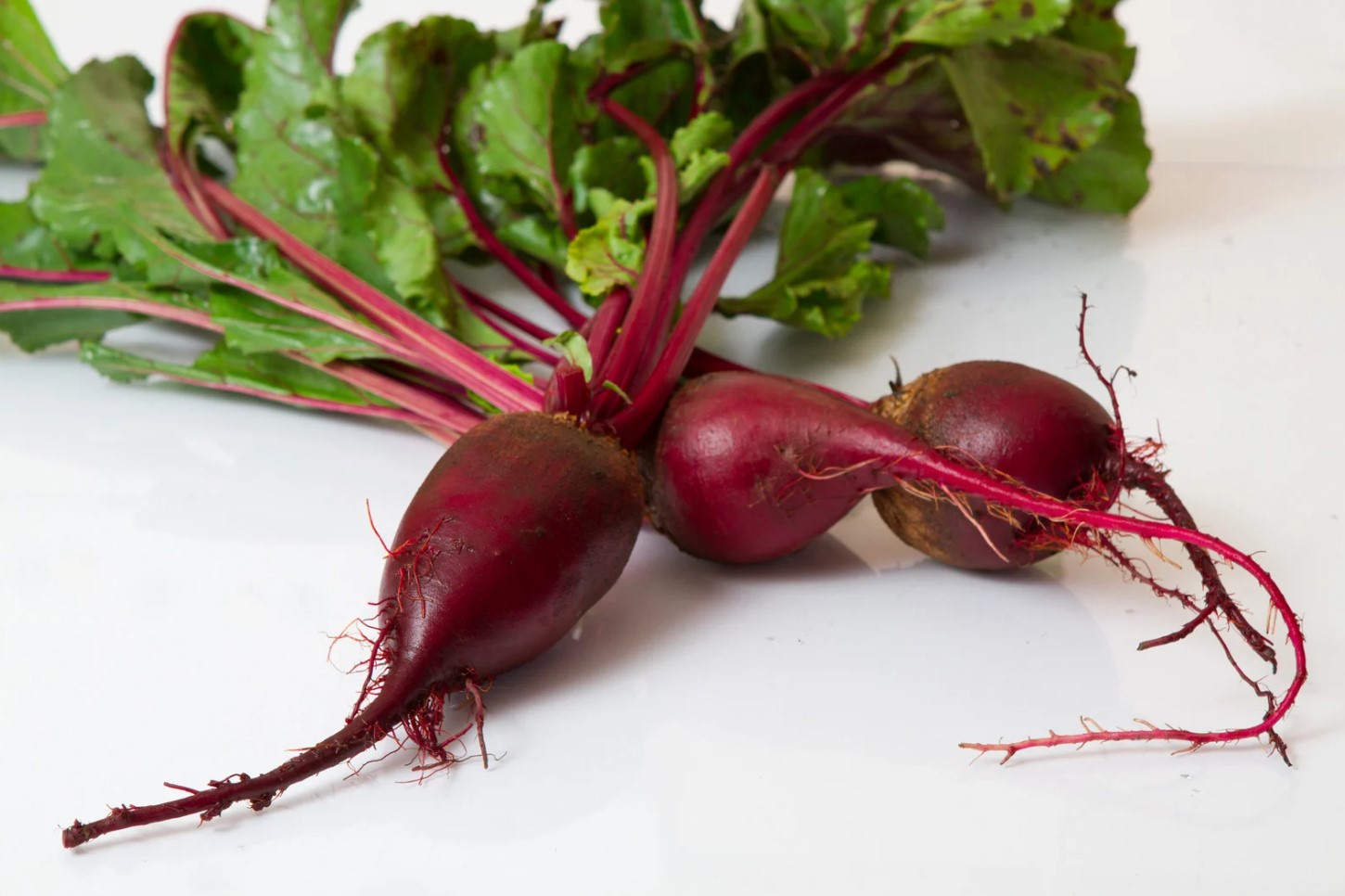
Anti-Cancer Properties Of Beetroot
Beet is a root vegetable that is known for its many nutritional benefits. It is packed with vitamins and minerals that make it a great addition to any healthy diet. Beetroot is also famous for its anti-cancer properties.
Beetroot contains a compound called betanin, which is responsible for its deep red color. Studies have shown that betanin has antioxidant properties that help to prevent cancer. Antioxidants help to neutralize free radicals in the body, which are known to cause cell damage and lead to cancer.
Another compound found in beetroot is called betacyanin. Research has shown that betacyanin can help to prevent the growth of tumors. It does this by increasing the production of enzymes that protect cells from carcinogens.
- Beetroot can be consumed in a variety of ways to reap its anti-cancer benefits. It can be juiced, roasted, boiled, or even pickled.
- Adding beetroot to your diet is easy. You can use it in salads, soups, smoothies, and even as a side dish.
| Types of cancer that beetroot may help prevent: | Ways to consume beetroot: |
|---|---|
| Colon cancer | Roasted beetroot |
| Lung cancer | Beetroot juice |
| Breast cancer | Beetroot salad |
| Prostate cancer | Pickled beetroot |
It is essential to note that while beetroot may have anti-cancer properties, it should not be used as a sole treatment for cancer. It is always best to consult a doctor or healthcare professional for cancer prevention and treatment.
In conclusion, beetroot is an excellent addition to any healthy diet. Its anti-cancer properties make it a valuable food to include in your diet. Adding beetroot to your meals is an easy and delicious way to help protect your body against cancer and improve your overall health.
Beetroot For Weight Loss And Digestive Health
Beetroot is a versatile vegetable that has been used for various purposes for hundreds of years. It has a myriad of health benefits and is particularly effective for weight loss and improving digestive health. This is because beetroot contains a high concentration of fiber, which is essential for the proper functioning of the digestive system.
The fiber in beetroot helps to regulate digestion and prevent constipation. This, in turn, helps with weight loss by reducing bloating and making one feel fuller for longer periods. Additionally, beetroot contains betaine, which aids in the production of stomach acid, thereby improving digestion by breaking down foods more effectively.
- Beetroot is low in calories, and a cup of beetroot only contains about 60 calories, making it an ideal food for people who want to lose weight.
- The vegetable is also high in nutrients such as vitamin C, magnesium, and potassium, making it an excellent addition to any diet.
- Beetroot also contains a compound called nitrate, which is converted to nitric oxide in the body, promoting blood flow and oxygenation.
- This increases the efficiency of the digestive process, and thus improves digestive health.
Consuming beetroot juice or smoothies is an excellent way to reap the benefits of this vegetable. Beetroot can also be eaten in salads, soups, and roasted as a side dish. One can incorporate beetroot into their daily diet in creative ways to enjoy its benefits.
| Benefits of Beetroot for Weight Loss and Digestive Health |
|---|
| • High fiber content aids digestion and reduces bloating |
| • Low in calories |
| • Contains betaine, which improves the production of stomach acid, aiding in digestion |
| • Contains nitrate, which promotes blood flow and oxygenation |
| • Can be consumed in a variety of ways, including smoothies, salads, and roasted dishes |
It is, however, important to note that beetroot contains oxalates, which can contribute to the formation of kidney stones in some individuals. Additionally, consuming too much beetroot may also cause the urine and stool to turn a reddish or pink color. This is a harmless condition known as beeturia, but it may cause some people to become alarmed.
All in all, beetroot is a powerful vegetable that offers numerous health benefits. Incorporating it into one’s daily diet can aid in weight loss, promote digestion, and improve overall health and well-being.
Improvement İn Vision And Eye Health With Beets
Beets have been praised for their many health benefits, but did you know they can also improve your vision and eye health?
Studies have shown that the high levels of nitrates and antioxidants found in beets can help to reduce the risk of age-related vision problems such as cataracts and macular degeneration.
In fact, research has shown that regularly consuming beets can also improve blood flow to the eyes, which can help to prevent eye strain and fatigue. This is particularly beneficial for those who spend a lot of time in front of a computer screen or other digital devices.
So, next time you’re looking to boost the health of your eyes, consider adding some beets to your diet. Whether you prefer them roasted, pickled, or blended into a smoothie, these colorful root vegetables can help to keep your vision sharp and your eyes healthy.
- Roast beets in the oven for a tasty side dish.
- Pickle beets for a tangy addition to salads and sandwiches.
- Blend beets into a smoothie with other fruits and vegetables for a delicious and nutritious drink.
Incorporating beets into your daily diet can be a simple and delicious way to support your eye health and improve your vision. As always, be sure to consult with your healthcare provider before making any significant changes to your diet or lifestyle.
Fighting Anemia With Beet
Anemia is a common blood disorder that affects the red blood cells’ ability to carry oxygen to the body’s tissues. It is characterized by fatigue, weakness, and breathlessness, among others. Anemia can be caused by various factors like dietary deficiency and certain medical conditions, including chronic kidney disease, pregnancy, and cancer. While there are different treatments for anemia, one natural remedy that has been gaining attention in recent years is beetroot.
Beetroot is a root vegetable that is known for its rich nutrient profile. It is an excellent source of iron, folate, vitamin C, and other essential vitamins and minerals that play a crucial role in blood health. In this blog post, we will discuss how beetroot can help fight anemia and improve overall blood health.
Boosting Iron Levels
Iron deficiency is the most common cause of anemia, especially among women and children. Beetroot is a rich source of dietary iron, which is an essential nutrient for the formation of hemoglobin, the protein in red blood cells responsible for carrying oxygen to the tissues. Incorporating beetroot into your diet can help boost your iron levels and, in turn, improve your blood health.
Increasing Red Blood Cells
Aside from iron, beetroot is also a rich source of folate, a B-vitamin that is essential for the production of red blood cells. It helps in the formation, repair, and maintenance of red blood cells and prevents their destruction, which is a common problem in certain types of anemia. Folate deficiency can lead to anemia, making beetroot an ideal food to include in your diet to fight anemia.
Other Nutrients
In addition to iron and folate, beetroot also contains other essential nutrients that support blood health. Vitamin C, for example, helps improve iron absorption and prevent iron deficiency anemia. Copper helps in the formation of red blood cells, while vitamin B6 plays a role in hemoglobin synthesis. All these nutrients work together to improve your blood health and fight anemia.
Conclusion
In summary, beetroot can be an effective and natural way to fight anemia. This root vegetable is rich in iron, folate, vitamin C, and other essential nutrients that are crucial for blood health. By incorporating beetroot into your diet, you can help boost your iron levels, increase your red blood cell production, and improve your overall blood health. However, it is always essential to consult your doctor before making any significant changes to your diet, especially if you have a medical condition like anemia.
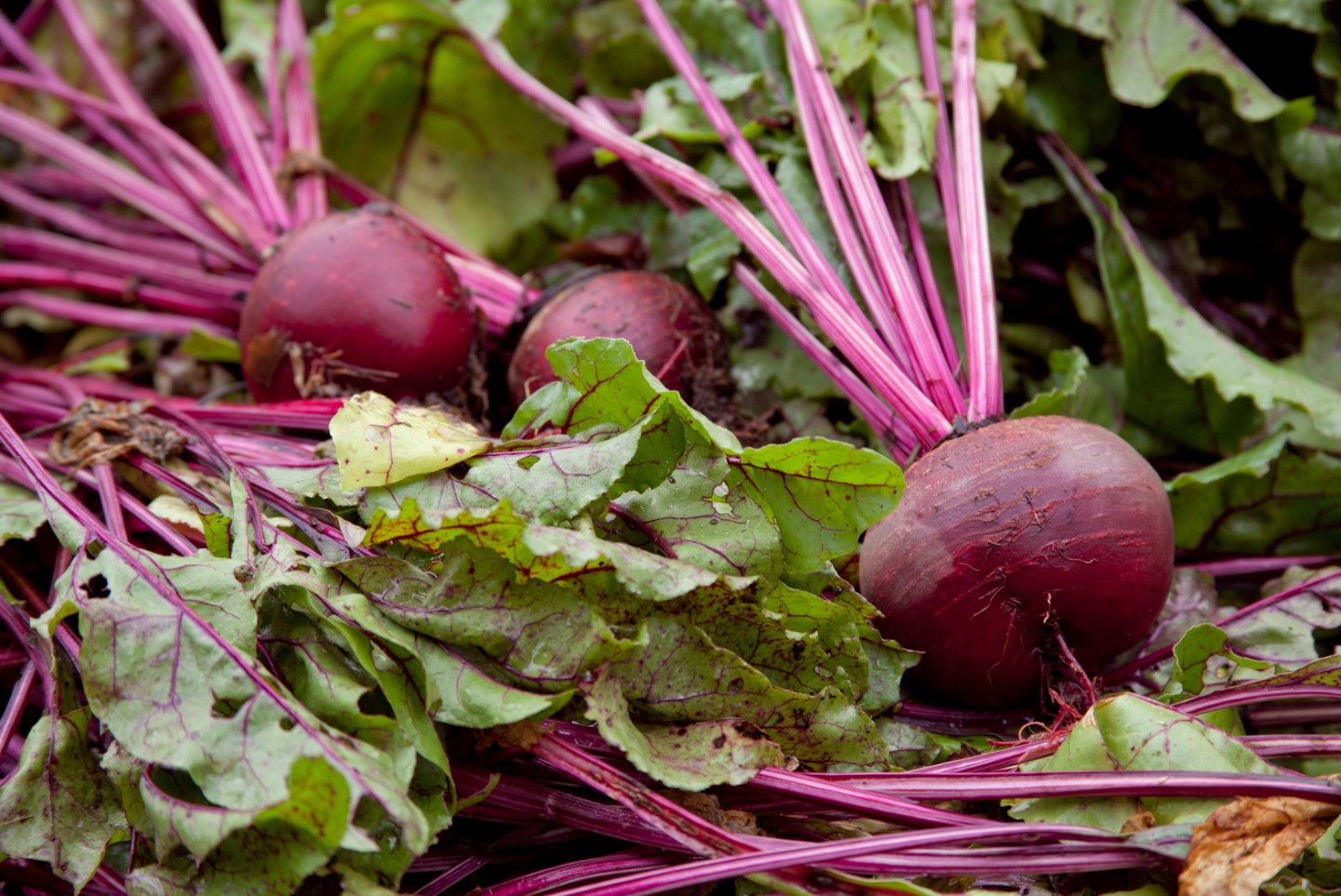
Benefits Of Beet For Skin And Hair Health
Beets are often viewed as just a vegetable to add to salads or roast in the oven, but did you know they also have numerous benefits for your skin and hair health?
First and foremost, beets are packed with antioxidants, which help protect your skin from damage caused by free radicals. Free radicals can come from things like pollution, sun exposure, and even stress. By consuming beets, you can help combat the effects of these damaging factors and keep your skin looking youthful and healthy.
- Beets are also high in vitamin C, which is essential for collagen production. Collagen is a protein that helps keep your skin firm and elastic. By consuming beets, you can help boost the overall health of your skin.
- In addition to being beneficial for the skin, beets can also help promote healthy hair. Beets are rich in iron, which is crucial for the production of hemoglobin. Hemoglobin is responsible for carrying oxygen to your hair follicles, which is necessary for healthy hair growth.
| Benefits of Beet for Skin and Hair Health | |
|---|---|
| Antioxidants | Protects skin from damage caused by free radicals |
| Vitamin C | Essential for collagen production and overall skin health |
| Iron | Promotes healthy hair growth by carrying oxygen to hair follicles |
Overall, incorporating beets into your diet can have numerous benefits for both your skin and hair health. From protecting against free radicals to promoting healthy hair growth, it’s clear that beets are a powerful addition to any wellness routine.
Topical Uses Of Beetroot For Skin Brightening And Anti-Aging
Beetroot may not be the first thing that comes to mind when thinking of skincare, but the root vegetable has been found to have a variety of topical uses for skin brightening and anti-aging. The nitrates found in beets have been shown to increase blood flow to the skin, resulting in a healthy glow. Additionally, the vitamin C content in beets helps to promote collagen production, which can reduce the appearance of fine lines and wrinkles.
One way to incorporate beetroot into your skincare routine is by using a beetroot face mask. Simply blend cooked and cooled beetroot with honey and apply to the skin for a few minutes before rinsing off. This will help to brighten the skin and reduce inflammation.
- Another way to use beetroot for skin brightening is by consuming it internally.
- Drinking beet juice can help to purify the blood and improve circulation, leading to healthier-looking skin.
- Beetroot supplements can also be taken for a more concentrated dose of vitamins and minerals that benefit the skin.
Beetroot can also be used topically for its anti-aging properties. The antioxidants found in beets help to protect the skin from environmental stressors, such as pollution and UV rays.
| Ingredient | Benefits for skin |
|---|---|
| Vitamin C | Stimulates collagen production, reduces fine lines and wrinkles |
| Nitrates | Increases blood flow to skin, resulting in a healthy glow |
| Antioxidants | Protects skin from environmental stressors, such as pollution and UV rays |
One way to use beetroot for anti-aging is by incorporating it into a DIY face serum. Simply blend cooked beetroot with a carrier oil, such as jojoba or almond oil, and apply to the skin. The antioxidants in the beetroot will help to protect the skin from damage, while the carrier oil will nourish and moisturize.
Overall, beetroot has a variety of topical uses for skin brightening and anti-aging. From face masks to supplements to DIY serums, there are many ways to incorporate beetroot into your skincare routine.
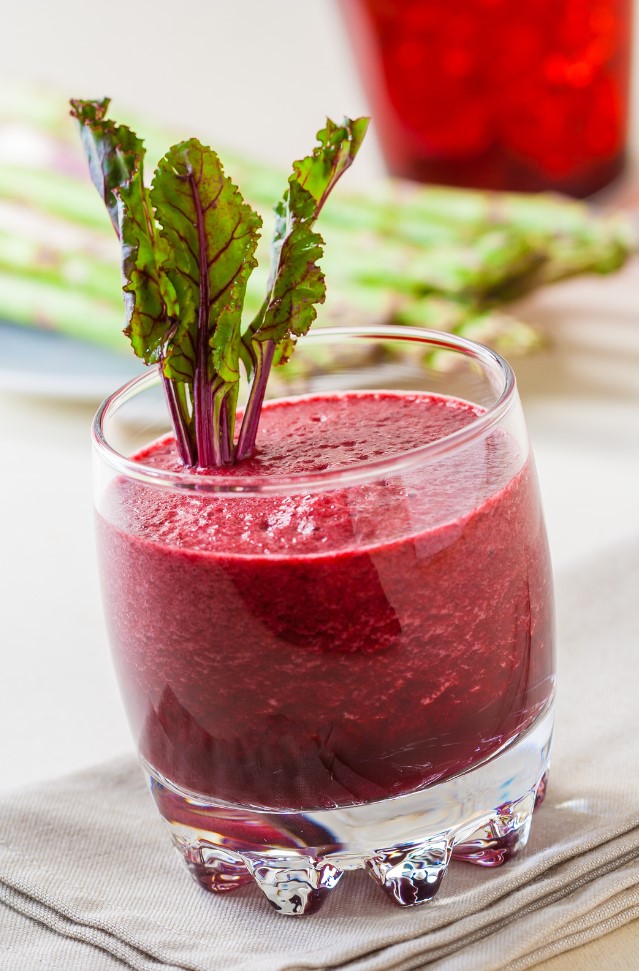
Beetroot Juice For Better Sleep And Stress Relief
Beetroot juice has become one of the most popular health drinks in recent years. It is packed with essential nutrients and antioxidants that contribute to maintaining good health. However, did you know that drinking beetroot juice can also improve your sleep and relieve stress?
Several studies have shown that consuming beetroot juice can improve an individual’s sleep quality. This is because beets contain high amounts of nitrates, which help to increase the levels of nitric oxide in the body. This compound is known to relax blood vessels and enhance blood flow, which helps to lower blood pressure and promotes better sleep.
- Beetroot juice is beneficial for people who are suffering from insomnia or other sleep-related disorders.
- It improves the quality of sleep by increasing the production of melatonin, a hormone that regulates sleep-wake cycles.
Moreover, beetroot juice is also an excellent natural remedy for relieving stress. It contains betaine, a compound that helps to reduce stress levels and increase feelings of happiness and well-being.
| Benefits of beetroot juice for relieving stress: |
|---|
| Reduces cortisol levels |
| Lifts mood and promotes relaxation |
| Allows for better coping with stressful situations |
| Enhances cognitive function |
Excessive stress can lead to numerous health problems such as anxiety, depression, and high blood pressure. Drinking beetroot juice can mitigate these risks by promoting relaxation and maintaining healthy blood pressure levels
Considerations And Precautions For Using Beetroot
Beets are a nutrient-packed root vegetable that has been enjoyed by many people around the world for centuries. Their deep, rich color and unique flavor make them a versatile ingredient in many recipes, from salads to soups to smoothies. However, despite their many health benefits, beetroot also carries some risks and considerations you need to be aware of before consuming them in large amounts.
One of the most important considerations when consuming beets is their high sugar content. While they are a great source of many important nutrients, including fiber and antioxidants, they can also contain up to 9 grams of sugar per 100 grams. This may not be an issue for most people, but those with diabetes or other blood sugar concerns should be mindful of how much beet they consume.
Another issue to consider is the possibility of allergic reactions. Some people may experience hives, itching, or swelling after consuming beets, especially if they have a history of allergies or hay fever. In some rare cases, beet consumption may even lead to anaphylactic shock, a severe and potentially life-threatening allergic reaction.
- It is also important to note that beets can interact with certain medications, including some blood thinners and medications used to treat high blood pressure. If you are taking any medications, it is best to consult your doctor before consuming beets to avoid any potential interactions.
- Another thing to consider when using beets is to make sure they are cooked thoroughly. Eating undercooked beetroot or beet greens can cause digestive issues such as diarrhea, bloating, and gas. Cooking them until tender can help prevent these issues and also make them more digestible.
| Precautions: | Considerations: |
|---|---|
|
|
In conclusion, beets offer numerous health benefits, but it is important to keep in mind the potential risks and considerations before consuming them in large amounts. By following these precautions, you can enjoy the many benefits of beets while minimizing any possible negative side effects.